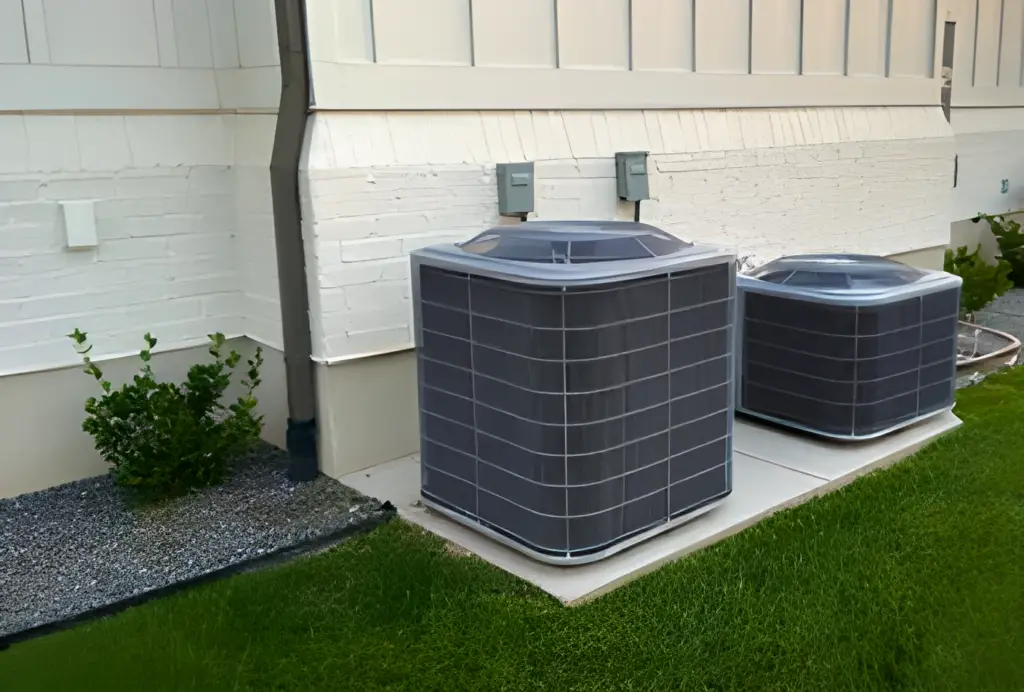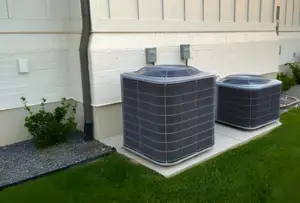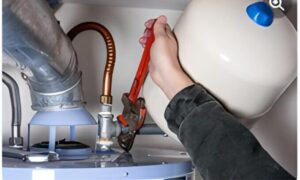Water heater woes can disrupt our daily routines and cause discomfort, leaving us in a state of inconvenience. When faced with a malfunctioning water heater, it becomes crucial to determine whether repair or replacement is the best course of action.
However, recognizing the signs of a faulty unit and understanding the common causes of failures is essential in making an informed decision. Moreover, the complexity of repairs, the required expertise, and safety concerns associated with electricity, gas, and water highlight the importance of hiring a professional.
So, what are the signs of water heater malfunction, and what are the common causes of failures? How can one decide between repair and replacement?
In this discussion, we will delve into these aspects and explore the ways to prevent future breakdowns, ultimately ensuring the longevity of your water heater and saving money in the process.
Signs of Water Heater Malfunction
When it comes to identifying signs of water heater malfunction, there are several key indicators to be aware of.
The first sign is consistently lukewarm or cold water. If the water temperature is not reaching the desired level, it could be a sign of a malfunctioning water heater.
Another indicator is the presence of unusual noises such as rumbling, banging, or popping. These noises could be caused by sediment buildup or a faulty heating element.
Additionally, a leak or pooling water around the water heater is a clear sign of a problem.
Lastly, a noticeable increase in utility bills can indicate that the water heater is not functioning efficiently.
Being aware of these signs can help homeowners identify water heater malfunctions early on and seek necessary repairs to prevent further damage.
Common Causes of Failures
One of the primary reasons for water heater failures is the buildup of sediment in the tank. Sediment, which includes minerals and debris from the water supply, can settle at the bottom of the tank over time. This can lead to a range of problems that affect the performance and efficiency of the water heater.
The common causes of water heater failures are as follows:
- Sediment buildup in the tank: Sediment can accumulate and harden, leading to decreased heating efficiency and potentially causing damage to the tank.
- Faulty thermostat affecting water temperature: A malfunctioning thermostat can result in inconsistent water temperatures or water that is too hot or too cold.
- Worn-out heating element: Over time, the heating element can deteriorate, causing inadequate heating or no hot water at all.
- Leak in the tank: Corrosion or damage to the tank can result in leaks, leading to water damage and potential safety hazards.
Identifying and addressing these common causes of failures promptly can help extend the lifespan of the water heater and avoid costly repairs or replacements.
Necessary Repairs for Water Heater Problems
To address water heater problems effectively, it is crucial to identify the specific issues and perform necessary repairs promptly and professionally. Some common repairs for water heater problems include:
- Flushing the tank to remove sediment buildup
- Replacing or recalibrating a faulty thermostat
- Repairing leaks or water pooling
- Replacing a worn-out heating element
Flushing the tank helps remove sediment and debris that can affect the efficiency of the water heater. A faulty thermostat can cause inconsistent water temperatures and may need to be replaced or recalibrated. Leaks or water pooling around the water heater should be repaired to prevent further damage. A worn-out heating element should be replaced to restore proper heating performance.
It is important to hire a professional for these repairs to ensure they are done safely and correctly.
Deciding Between Repair and Replacement
In order to make an informed decision regarding water heater issues, it is essential to carefully consider whether repair or replacement is the best course of action. Here are four factors to consider when deciding between repair and replacement:
- Age of the water heater: If the water heater is nearing the end of its expected lifespan, which is typically around 10-15 years, it may be more cost-effective to replace it rather than investing in costly repairs.
- Extent of the damage or malfunction: If the problem is minor and can be easily fixed, repair may be the more sensible option. However, if the damage is severe or if the appliance is experiencing recurring issues, replacement may be the more practical choice.
- Budget considerations: Repairing a water heater is generally less expensive than replacing it. If budget is a concern, opting for repair may be the more financially feasible option.
- Consulting with a professional: It is always recommended to consult with a professional plumber or HVAC technician who can assess the situation and provide expert advice. They can help evaluate the condition of the water heater, estimate repair costs, and guide you in making the best decision based on your specific circumstances.
Importance of Hiring a Professional
Engaging the services of a professional plumber or HVAC technician is paramount when it comes to addressing water heater issues due to the complex nature of repairs and the need for expert knowledge and specialized tools.
Water heaters are intricate systems that require technical expertise to diagnose and resolve problems effectively. Professionals have undergone proper training and possess the necessary skills to handle various water heater issues, ensuring accurate repairs and minimizing the risk of further damage.
Additionally, professionals have access to the right tools and equipment, enabling them to perform repairs efficiently and safely. This is particularly important when dealing with electricity, gas, and water connections, as mishandling these can lead to serious accidents.
Preventing Future Breakdowns With Maintenance
Addressing water heater issues through professional services is crucial, but it's equally important to take proactive measures to prevent future breakdowns and ensure the longevity of your water heater.
To prevent future breakdowns and extend the lifespan of your water heater, here are some maintenance tasks that you should regularly perform:
- Flushing the tank: Sediment and debris can accumulate at the bottom of the tank over time, leading to reduced efficiency and potential damage. Flushing the tank annually helps remove these contaminants and improves the performance of your water heater.
- Checking and replacing faulty parts: Regularly inspecting the various components of your water heater, such as the thermostat, heating element, and pressure relief valve, can help identify any issues early on. Replace any faulty parts promptly to prevent further damage.
- Importance of regular inspections: Schedule regular inspections by a professional plumber or HVAC technician to ensure that your water heater is functioning optimally. They can identify any potential problems and address them before they escalate into major issues.
- Saving money on frequent repairs or replacements: By investing time and effort into regular maintenance, you can avoid costly repairs or premature replacements. Regular maintenance helps identify and resolve minor issues before they become major problems, saving you money in the long run.
Extending the Lifespan of Your Water Heater
To ensure the longevity of your water heater, it is essential to implement proper maintenance strategies.
Regular maintenance can help prevent breakdowns and extend the lifespan of your water heater.
One important maintenance task is flushing the tank to remove sediment and debris that can accumulate over time. Sediment buildup can decrease the efficiency of the water heater and lead to premature failure.
Additionally, checking and replacing faulty parts, such as the thermostat or heating element, can help prevent malfunctions and ensure optimal performance.
It is also important to schedule regular inspections by a professional plumber or HVAC technician to identify any potential issues before they become major problems.
Saving Money on Repairs and Replacements
Proper maintenance practices not only extend the lifespan of your water heater, but they can also save you money on frequent repairs or replacements. Here are four ways to save money on water heater repairs and replacements:
- Regularly flush the tank to remove sediment buildup: Sediment buildup can lower the efficiency of your water heater and lead to malfunctions. Flushing the tank at least once a year can help prevent costly repairs.
- Inspect and replace faulty parts promptly: Faulty thermostat, heating element, or dip tube can cause your water heater to malfunction. Regular inspections and timely replacements can prevent further damage and expensive repairs.
- Schedule regular inspections: Professional inspections can detect potential issues before they become major problems. Regular inspections can help you identify and address minor repairs or adjustments, saving you money in the long run.
- Consider the age and extent of damage: Older water heaters are more prone to breakdowns and may require frequent repairs. If the damage is significant or the unit is nearing the end of its lifespan, it may be more cost-effective to replace the water heater instead of repairing it.
Frequently Asked Questions
How Can I Tell if My Water Heater Is Still Under Warranty?
To determine if your water heater is still under warranty, refer to the manufacturer's documentation or contact the manufacturer directly. Provide them with the necessary information, such as the model number and installation date, for accurate verification.
Are There Any DIY Tips for Fixing Minor Water Heater Issues?
While there are some minor water heater issues that can be fixed DIY, it is important to note that water heater repairs can be complex and potentially dangerous. It is recommended to consult a professional plumber or HVAC technician for proper diagnosis and repair.
What Are the Potential Dangers of Attempting to Repair a Water Heater Without Professional Assistance?
Attempting to repair a water heater without professional assistance can pose potential dangers. These include electrical shocks, gas leaks, and water damage. It is crucial to hire a professional to ensure the safety and proper functioning of the water heater.
Can a Water Heater Be Repaired if It Is Leaking?
Yes, a leaking water heater can be repaired depending on the cause of the leak. It is important to consult with a professional plumber or HVAC technician to assess the extent of the damage and determine the appropriate repair solution.
Is It Possible to Upgrade or Replace Certain Parts of a Water Heater Instead of Replacing the Entire Unit?
Yes, it is possible to upgrade or replace certain parts of a water heater instead of replacing the entire unit. This can be a cost-effective solution, especially if the damage or malfunction is limited to specific components. Consulting with a professional plumber or HVAC technician is recommended to determine the best course of action.
Conclusion
In conclusion, recognizing the signs of a malfunctioning water heater and understanding the common causes of failures are crucial in determining whether repair or replacement is necessary.
Hiring a professional for water heater issues is essential due to the complexity of repairs and safety concerns associated with electricity, gas, and water.
Regular maintenance can help prevent future breakdowns and extend the lifespan of the water heater, ultimately saving both time and money.








